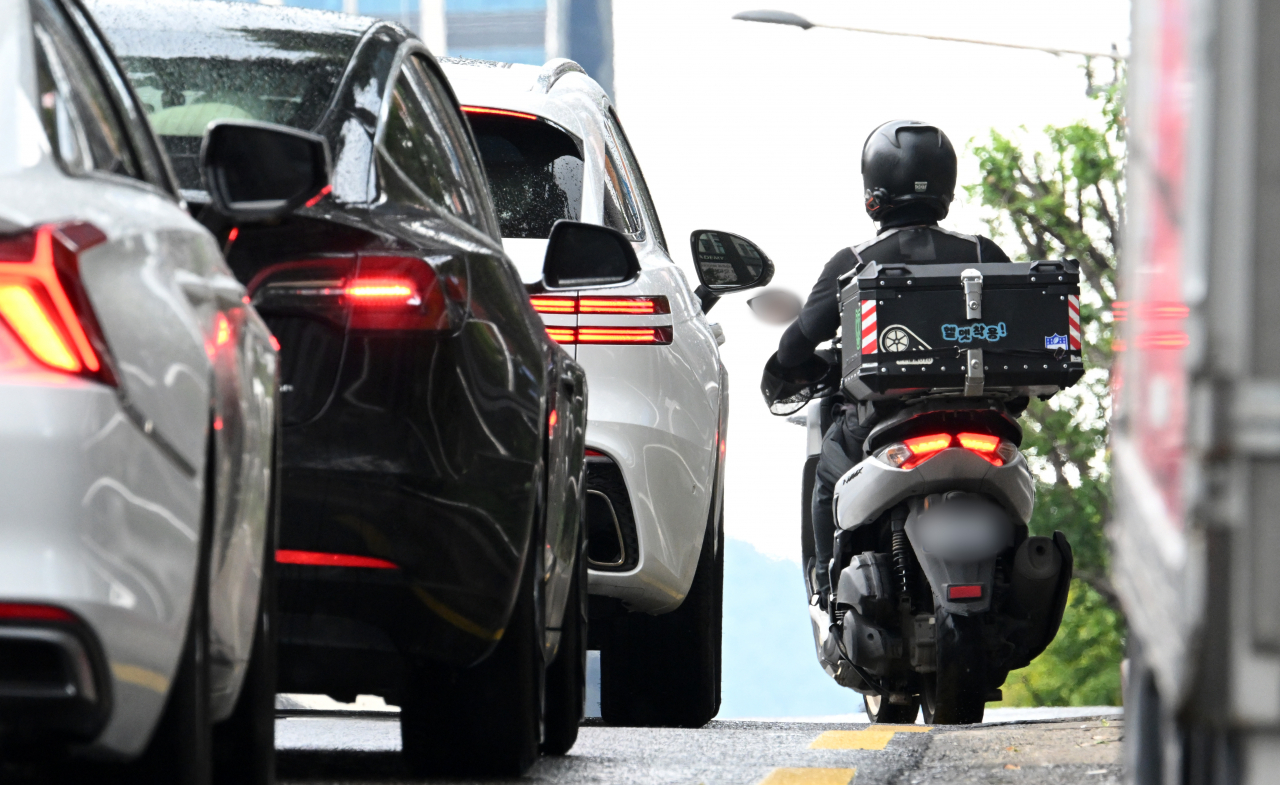 |
A delivery worker on a motorcycle passes by a line of vehicles in Gangnam-gu, southern Seoul, on July 26. (Im Se-jun/The Korea Herald) |
The number of foreign nationals illegally working as delivery workers in South Korea has surged by 50 percent since the Ministry of Justice initiated a crackdown on illegal employment practices in the industry in 2023.
According to the Justice Ministry, 171 cases of foreign nationals being illegally employed in food delivery services and parcel services were detected as of July 2024, up from 117 cases detected in the whole of 2023.
If this trend continues, the ministry expects numbers to double by the end of this year.
The nationalities of the delivery workers caught have diversified from last year.
While Vietnamese nationals accounted for 94 of the 117 cases last year, as of late June 2024, Vietnamese and Uzbek nationals took up most of the illegal employment cases, with 66 and 51 cases, respectively.
For Uzbek nationals specifically, the number of illegal employment cases this year has seen a sixfold increase, as only eight cases were reported last year of illegal delivery workers from Uzbekistan.
This year, the ministry also saw more cases of illegal workers from Malaysia, Russia and Pakistan, recording up to eight, seven and five cases, respectively.
Regarding the rise in foreign nationals employed as delivery workers, the ministry explained that "the primary reason is the recent increase in demand for delivery personnel."
The delivery market grew rapidly during the COVID-19 pandemic leading to an increase in the workforce. However, the number of delivery workers fell for the first time in 2023 by 5.5 percent, according to data from the Ministry of Employment and Labor released in August.
Though only those with an F-2, F-5 and F-6 visa are allowed to work in delivery in Korea, some sought to skirt the limitations by using others’ alien registration cards, while others were on student visas.
In practice, delivery service companies such as Baedal Minjok only allow foreign delivery workers if they have the appropriate visa, while Coupang Eats, another delivery service company, does not accept foreign delivery personnel regardless of their visa type.
However, despite these limitations, observers point out that verifying who actually makes the food deliveries is difficult, as most transactions occur without physical contact between the delivery personnel and the employer.
One problem with such illegally employed delivery workers is that it is more difficult to hold workers accountable when an accident occurs. Delivery personnel who impersonate others’ identities or use fake license plates often flee the scene.
According to the Immigration Act, foreign nationals who are found to be staying and working illegally in Korea can be ordered to leave the country. Due to this law, several drivers avoid legal processes after accidents take place.
For example, on Sept. 1, a man who was illegally working as a delivery driver fled from an accident site where he hit a 4-year-old pedestrian in Gwangju. After being caught by the police, he reportedly confessed to the police that he fled as he was “scared that his illegal status would be discovered.”







